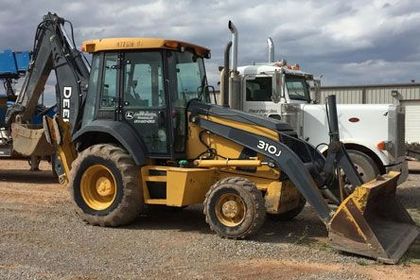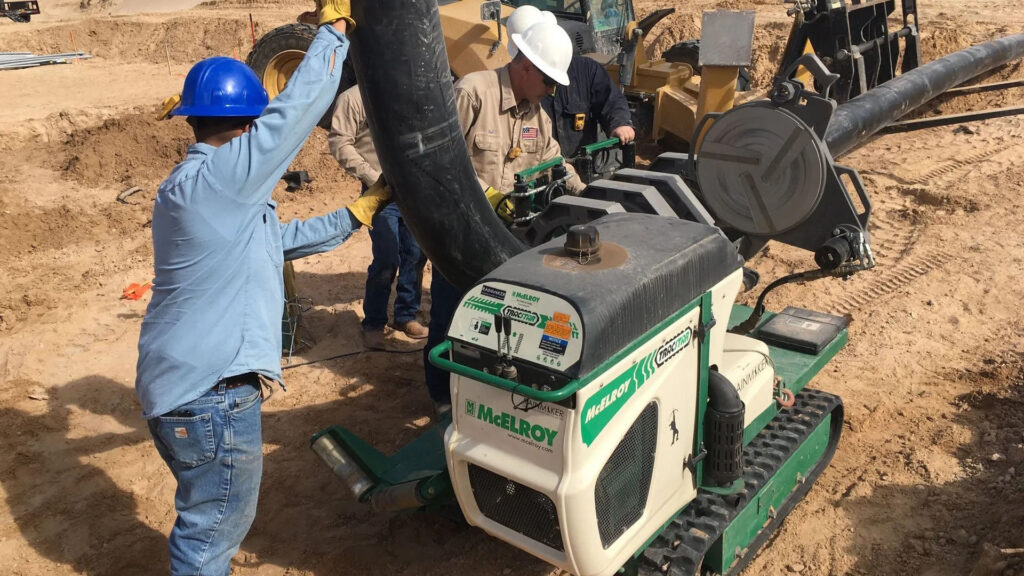Superior Oilfield Rentals Texas: everything companies ask before renting
A Comprehensive Guide to the Different Sorts Of Oil Field Equipment and Pipeline Equipment Available
The oil and gas industry relies heavily on specific devices for effective removal and transportation. Different types of machinery, from drilling rigs to storage tanks, play crucial functions in this complex procedure. Each item of devices offers distinctive features that contribute to general operational success. Comprehending these elements is essential for any person associated with the field. As the sector advances, so also do the modern technologies that sustain it. What innovations are on the horizon?

Drilling Rigs: The Foundation of Oil Expedition
Drilling rigs act as the important machinery in the domain of oil expedition, enabling companies to access hydrocarbon books buried deep under the Earth's surface. These rigs come in various types, including land rigs, offshore rigs, and mobile units, each made to operate in certain settings. Outfitted with sophisticated modern technology, drilling rigs can permeate geological developments with accuracy, ensuring effective source removal. The structural integrity and operational capacities of these rigs are vital, as they have to withstand extreme problems and considerable pressures. The selection of a drilling rig impacts the general job cost and timeline, making it a crucial factor to consider for oil business seeking to enhance their exploration efforts and take full advantage of efficiency in their operations.
Pumps: Vital for Fluid Movement
In the oil extraction procedure, the duty of pumps is considerable, helping with the motion of liquids throughout various stages of production. Pumps are essential for moving petroleum, water, and various other fluids from below ground tanks to the surface area and afterwards through pipes to refineries. They come in numerous types, consisting of centrifugal, positive displacement, and completely submersible pumps, each serving specific objectives based upon the fluid characteristics and functional requirements. Centrifugal pumps are generally made use of for their efficiency in high-flow applications, while favorable displacement pumps master dealing with viscous fluids. The selection of pump effects general efficiency, functional security, and maintenance expenses. Proper option and maintenance of pumps are vital for maximizing manufacturing and reducing downtime in oil area procedures.
Valves: Controlling Circulation and Pressure

Valves play an important role in handling the flow and stress of liquids within oil fields and pipelines. Different sorts of shutoffs serve unique applications, each developed to satisfy details functions fundamental for effective procedure - Superior Rentals near me. Recognizing the qualities and uses these shutoffs is important for optimizing system performance and safety and security
Sorts of Valves
Important components in oil field operations, valves play a vital function in managing the flow and pressure of liquids within pipes and tools. Different kinds of valves are made use of to fulfill the varied requirements of oil and gas production. Common kinds consist of entrance shutoffs, which provide a straight-line circulation and marginal pressure decrease; globe valves, recognized for their strangling abilities; and ball valves, identified for their fast on/off control. Furthermore, check valves avoid backflow, while butterfly shutoffs use a light-weight option for controling flow. Each shutoff kind is designed with specific products and setups to stand up to the severe conditions usually located in oil fields, making sure reliability and efficiency in procedures. Understanding these types is critical for reliable system administration.
Valve Applications and Features
While different kinds of valves serve distinct objectives, their primary applications rotate around managing circulation and pressure within oil and gas systems. Shutoffs such as gate, world, and sphere valves regulate liquid motion, guaranteeing peak performance and safety and security. Entrance shutoffs are frequently utilized for on/off control, supplying minimal flow resistance. World valves, on the various other hand, offer exact flow guideline, making them suitable for strangling applications. Round valves are preferred for their fast operation and tight securing capabilities. In enhancement, pressure safety valve are crucial for protecting against system overpressure, protecting devices honesty. In general, the appropriate choice and application of valves enhance operational performance, guaranteeing the trusted transport of oil and gas with pipelines and processing facilities.
Compressors: Enhancing Gas Transport
Compressors play a critical role in the effective transportation of gas, ensuring that it relocates smoothly with pipelines over fars away. These devices enhance the stress of all-natural gas, allowing it to conquer friction and elevation modifications within the pipeline system. In addition, compressors promote the harmonizing of supply and need, suiting variations in intake and manufacturing rates. Various sorts of compressors are employed in the industry, consisting of centrifugal, reciprocating, and rotating screw compressors, each offering distinctive advantages based on the operational demands. Normal maintenance of these compressors is important to make the most of effectiveness and reduce downtime, eventually adding to a trustworthy gas transportation network. Their crucial function emphasizes the value of compressors in the overall oil and gas facilities.
Storage Tanks: Safe and Efficient Liquid Administration
Reliable transport of natural gas depends find here on different support group, among which is the proper management of storage space tanks. These tanks play an essential duty in safely containing liquids, guaranteeing that operational efficiency is kept while decreasing ecological threats. Built from resilient materials, they are developed to endure high stress and destructive elements. Effectively sized and purposefully located, tank help with the smooth flow of all-natural gas and various other fluids, protecting against bottlenecks in supply chains. Regular upkeep and monitoring are imperative to find leaks or structural concerns, promoting safety and security and compliance with regulative standards. Eventually, the efficient management of tank is critical for the total navigate to this site stability and integrity of the oil and gas sector's liquid handling systems.
Pipeline Solutions: Framework for Transportation
Pipeline systems function as the backbone of the oil and gas market, facilitating the efficient transport of hydrocarbons over vast distances. These systems contain various elements, consisting of pipes, valves, pumps, and compressors, all diligently developed to guarantee seamless flow. The products utilized in pipeline building and construction, often steel or high-density polyethylene, are selected for toughness and resistance to corrosion. Pipeline networks can span throughout land and water, attaching manufacturing websites to refineries and circulation facilities. In addition, advanced innovation allows real-time monitoring of flow rates and stress levels, enhancing operational effectiveness. The calculated positioning of these pipes decreases ecological influence while optimizing source availability, consequently playing a crucial duty in conference energy needs around the world.
Safety Equipment: Making Certain Employee and Environmental Management
The operation of pipeline systems, while crucial for power transport, likewise provides considerable safety challenges for employees and the atmosphere. Safety equipment plays a significant role in mitigating these risks. Personal protective equipment (PPE) such as helmets, gloves, and non-slip shoes safeguards employees from physical dangers. Furthermore, gas detection systems monitor for leakages, making certain that unsafe materials do not present a risk to personnel or the bordering ecological community. Emergency situation shutdown systems are crucial for rapidly halting procedures during a situation, stopping potential catastrophes. Spill control materials, consisting of absorbents and barriers, are basic for minimizing ecological impact. Generally, spending in comprehensive safety tools is crucial for preserving functional integrity and securing both workers Source and the atmosphere in the oil and gas field.

Regularly Asked Concerns
Exactly how Do I Select the Right Oil Field Equipment for My Project?
Choosing the right oil area tools includes examining task specs, budget plan constraints, and operational needs. Think about aspects such as equipment reliability, compatibility with existing systems, and the distributor's reputation to assure peak efficiency and security.
What Are the Maintenance Needs for Oil Field Equipment?
Upkeep demands for oil area tools consist of routine assessments, lubrication, and prompt repair services. Operators needs to additionally comply with maker guidelines, monitor performance metrics, and warranty conformity with security policies to enhance longevity and performance.

Just How Can I Guarantee Conformity With Environmental Regulations?
To ensure conformity with environmental policies, firms must carry out normal audits, implement finest techniques, purchase training, keep proper paperwork, and remain updated on legislation (Superior Rentals near me). Cooperation with ecological firms can likewise enhance adherence to guidelines
What Is the Ordinary Life Expectancy of Pipeline Equipment?
The typical lifespan of pipeline equipment commonly varies from 20 to 50 years, relying on factors such as material top quality, ecological problems, and maintenance techniques. Routine examinations can significantly influence longevity and operational effectiveness.
How Do I Safely Move Oil Field Equipment to Remote Locations?
Moving oil field equipment to remote locations requires mindful planning, consisting of route analysis, protecting permits, utilizing appropriate automobiles, and making certain safety methods are complied with. Correct training and interaction amongst staffs are necessary for successful transportation.